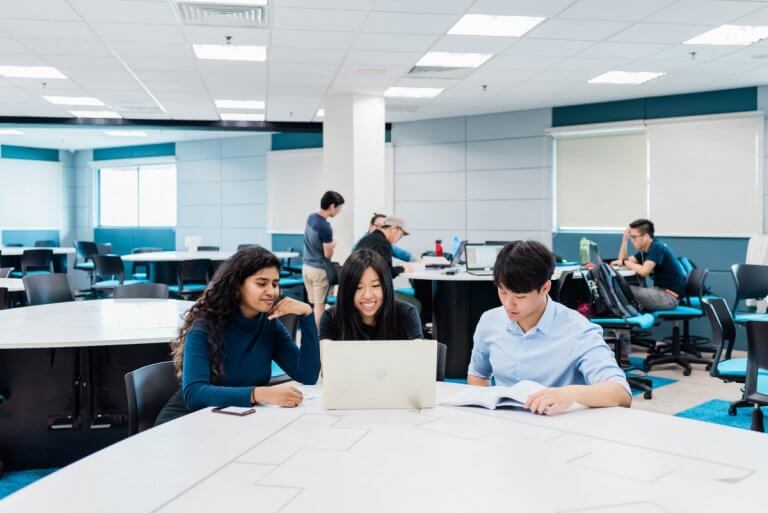
In 2018, CEOWORLD magazine crowned Malaysia the best country in the world to invest in or do business. The Southeast Asian nation emerged top of the list, beating more developed or faster-growing economies in the region like Singapore and Indonesia in the ranking indicators, which included corruption, freedom (personal, trade and monetary), workforce, investor protection, infrastructure, taxes, quality of life, red tape and technological readiness.
Data backs this finding. The 2018 total trade figures showed an upward trend compared to the year before, wrote Malaysia’s Deputy Minister of International Trade & Industry. The Business Tendency Survey results for Q4 2018 also found most establishments expect that business performance from October 2018 until March 2019 will be better compared to the period from April to September 2018 (with the exception of the construction sector).
The region shows similar robustness for business. A report by the OECD Development Centre has forecasted Southeast Asia to grow by 5.2 percent in 2019-23, faster than the rate posted in 2012-16. Singapore, Kuala Lumpur and Bangkok feature in the Top 50 of the Global Financial Centres Index, a ranking of the competitiveness of financial centres based on a poll of industry professionals and statistical input.

Charis Wong, accomplished alumna of the School of Business, founding member and current co-President of Monash Malaysia Business Alumni Chapter
Business schools are not immune to these changing industry tides. A business degree is no longer confined to classes on finance, marketing, accounting and economics. As topics like sustainability and digital disruption now dominate national and regional business conversations, universities are reworking curricula to fit with the times.
Charis Wong, PwC Malaysia Senior Associate (Deals Strategy), looks back fondly on her time as a Bachelor of Business and Commerce student at the School of Business, Monash University (Monash Business). The accomplished alumna, who has held positions such as business analyst at Reddal and now serves as the Co-President of the Monash Malaysia Business Alumni Chapter said the business courses in Malaysia “have evolved”, placing more focus on technology as well as the incorporation of entrepreneurships and innovation in the syllabus.
“With the rise of tech giants and growth in the start-up scene globally, universities have seized the opportunity to improve students’ critical thinking skills, creativity, and communication skills through the way courses are delivered. In addition to that, incubators have been set up in a number of universities, serving as a platform for students to learn through transforming their ideas into reality!”
At the forefront of this evolution is Monash Business. Acutely conscious to industry shifts, this top private university in Malaysia for business embodies the progressive pedagogy of the world’s most elite business schools: multi-disciplinary programmes, global accreditation by the Association to Advance Collegiate Schools of Business (AACSB), experiential teaching, high-impact research, Entrepreneurship and Innovation Hub (eiHub) and close links with industry giants.

The Entrepreneurship and Innovation Hub (eiHub) under the School of Business merges business and technology under one roof
This sterling combination won the school recognition as one of the top one percent of universities, coming 74th in Times Higher Education’s World University Rankings, cementing the school’s reputation as the best business university in Malaysia with its notable graduates making an impact regionally and worldwide.
These are the business graduates who contribute to society and spur historic changes, like the birth of a New Malaysia following the country’s historic election results last May. This is what separates a great business school from one that’s just good, and the School of Business is shaping the future for a young generation of graduates who will make waves in the business sphere.
Since graduating with a banking and finance degree from the School of Business, Safaath Ahmed Zahir has used her skills and knowledge to land work with the Capital Market Development Authority of the Maldives, where she created an NGO called Women on Boards – the first Maldivian organisation to advocate specifically for women on boards and in leadership positions. She was also named one of Forbes’ 30 Under 30 in Asia, and met Queen Elizabeth at Buckingham Palace, where she became the first – and, to date, only – Maldivian to receive the Queen’s Young Leaders Award.

After graduating from the School of Business, Safaath Ahmed Zahir has become the first Maldivian to receive the Queen’s Young Leaders Award
Today, Safaath is the young democracy’s leading activist in women’s rights. Women and Democracy, an organisation she founded, aims to advocate for women in political leadership, as only about six percent of local government councillors are female. Last year, the United Nations recognised her as one of the 17 young people for promoting community leadership.
But that’s not the end of the road for her. Beyond completing her business degree course and all her accomplishments since, Safaath has big ambitions ahead and plans to run for office, proof of Monash Business’ success in preparing students for successful careers in business and beyond upon graduation.
“It was a very special moment in my life. But I don’t do this work for any recognition. I do it for the good of our community. I’m so happy to be making a positive impact and hopefully bringing change to my country.”
Follow Monash Malaysia on Facebook, Twitter, YouTube, Instagram, Weibo and LinkedIn







